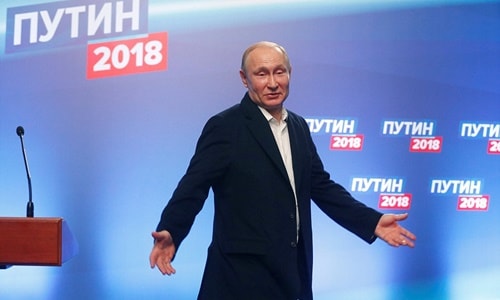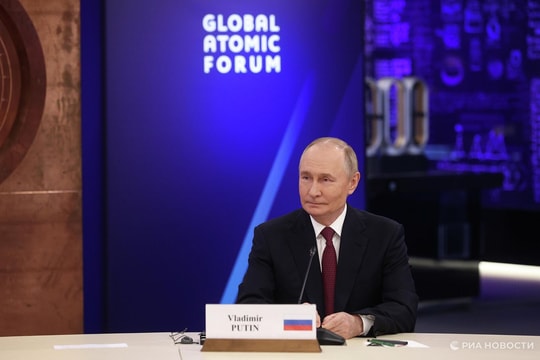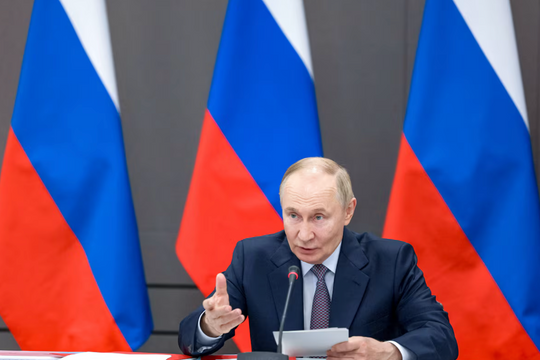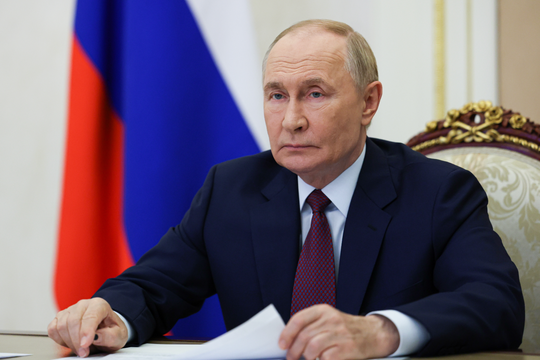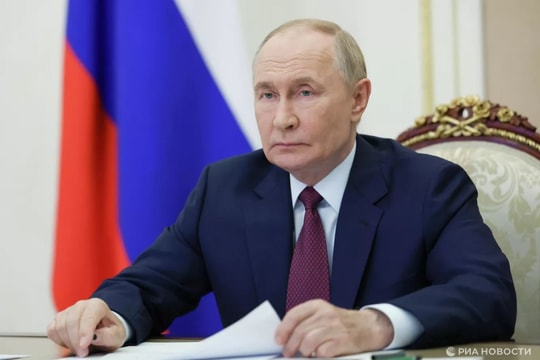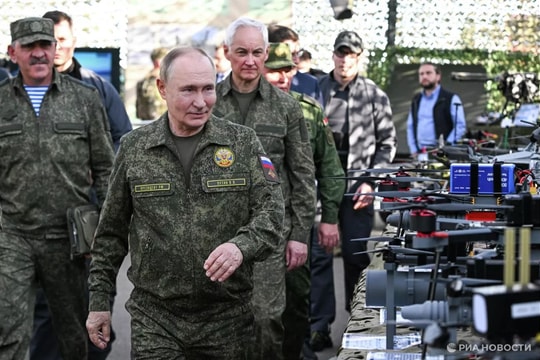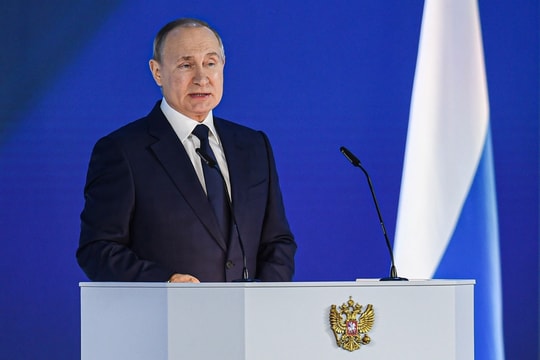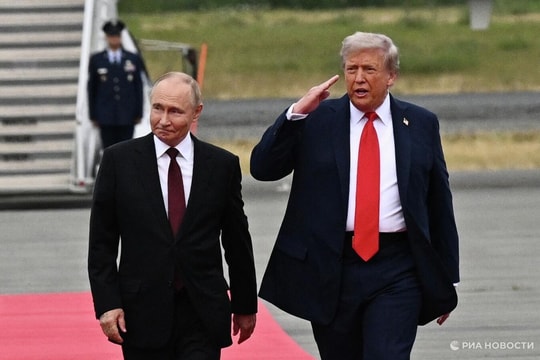Challenges Putin faces in his fourth term
Resolving tense relations with the West and economic reform are the two most important challenges for Mr. Putin in his fourth presidential term.
|
Vladimir Putin won a landslide victory in the Russian presidential election, entering his fourth term as the country's leader. Photo:Reuters. |
Mr. Putin was re-elected as Russian president today, entering his fourth term leading the country after winning overwhelmingly in the election on March 18. Speaking to supporters in the center of Moscow, Mr. Putin affirmed that "success awaits" Russia. However, to achieve that success, the Kremlin boss still has to overcome many challenges.
Strained relationships
Mr. Putin's fourth term opened in the context of tense relations between Russia, the US and European countries.
Russia's annexation of Crimea in 2014, coupled with Western accusations that Moscow was backing separatists, exacerbated Ukraine's political crisis, forcing the country to face a series of international sanctions, severely affecting the economy.In addition, suspicions that Russia colluded with Donald Trump's campaign and interfered in the 2016 US presidential election also caused relations between Washington and Moscow to fall to their lowest level since the Cold War.
Russia's decision to intervene militarily in the Syrian civil war has been met with much criticism. Moscow claims it wants to eradicate terrorist organizations in Syria, but the US and the West say Russia's goal is only to support the government of President Bashar al-Assad, who has been internationally called on to relinquish power since 2011, when the Syrian civil war broke out.
The poisoning of former Russian double agent Sergei Skripal and his daughter in the UK earlier this month has soured relations between London and Moscow. Both sides have expelled each other's diplomats in response. Britain has even accused Mr Putin of ordering the Skripal poisoning, but President Putin has called the accusation that Russia assassinated the former spy "absurd".
Experts say that to resolve these not-so-smooth relationships, President Putin needs to make great efforts in the next 6 years in power.
But Evgeny Minchenko, a Moscow-based policy consultant, speculated that it was unlikely that "Putin would back down." "He would push for maximum independence from the West and build alliances with other centers of power," Minchenko stressed.
Economic recovery
The Russian economy has begun to show signs of improvement in 2018. The inflation rate in December 2017 fell to a record low of 2.5%, while the unemployment rate also remained at a relatively low level of 5.1%.
Russia's economy recovered from a two-year recession and grew 1.4% last year, driven mainly by rising domestic demand and investment, according to Swiss bank UBS. UBS forecasts that Russia's gross domestic product (GDP) will continue to grow over the next two years.
JP Morgan Bank estimates that the Russian ruble will not fluctuate much while oil prices gradually stabilize, contributing to attracting investment capital.
However, economic recovery remains a difficult task for the Putin administration and it requires a deep reform of the system's structure, according toMoscow Times.
Before the election, Mr. Putin pledged to reduce poverty, promised to spend hundreds of billions of dollars on infrastructure and outlined an ambitious economic growth target of 8%. However, this goal is considered extremely difficult when Russia is facing a series of problems such as low growth rate, aging population, corruption and the impact of sanctions. Although Russians still love President Putin, recent surveys show that they are increasingly showing a lack of confidence in the country's economic situation.
Signs of improvement are evident in Moscow, but outside the capital, real wages have been falling for the past three years, said Daragh McDowell, a Russia expert at risk and strategy consultancy Verisk Maplecroft.
“There is a general sense that people in the ‘outlying areas’ are getting fed up with the decline in living standards,” McDowell toldCNBC. He believes that Russia's growth prospects for the next three years are "not much".
Go on or stop
Without constitutional reform, Mr. Putin will not be able to run for president after his fourth term in 2024 because Russian law prohibits holding power for two consecutive terms. Mr. Putin may decide to leave the Kremlin after 24 years of leading the country and pave the way for a successor. This prospect will certainly create a competition for influence within the government for the next six years, according toAFP.
"No one will wait passively, different groups will try to find every way to promote their interests," said independent analyst Nikolai Petrov.
In a recent interview with the channelNBC, America, Putin revealed that he had been thinking about a successor since 2000. However, in the current Russian political arena, no one is strong enough to confront Putin and no political figure can stand on par with him in terms of public trust.
One way for Putin to maintain his influence in government after 2024, analysts say, is to change positions. He could repeat the move he made in 2008 when he stepped back as prime minister, allowing Dmitry Medvedev to take over as president and then return to the Kremlin in 2012.
But the memory of the mass protests in Russia six years ago, when Putin swapped the presidency with Medvedev, may have put him off this option. And age is also a big issue. By 2030, when Putin is allowed to run again, he will be 78.
Changing the constitution to “rule for life” as Chinese President Xi Jinping has done is also an option mentioned for Mr. Putin. But so far, he has ruled out this possibility.
"I will never change the constitution, especially when it benefits me personally. I have no intention of doing so," Mr. Putin told the channel.NBC.

